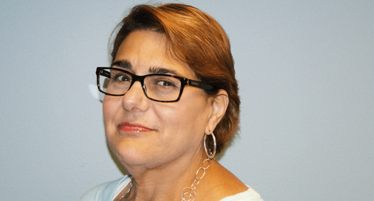Making Cannabis Labs Accountable
Sitting Down With... Susan Audino, Assessor and Instructor at A2LA, and Chemistry Laboratory Consultant at S.A. Audino & Associates, LLC, Wilmington, Delaware , USA.

You had an unusual route into analytical chemistry…
I was originally a psychologist, but after several years working as a counselor in emergency rooms, I was burnt out and ready for a change. I was accepted onto a course to re-train as a chiropractor, provided I first took classes in organic chemistry, biochemistry and physics. I enjoyed my chemistry classes so much that I decided to continue them. I can remember a specific day when I was studying the visible light spectrum in the laboratory and I was filled with fascination about the underlying physics. It sparked a passion for spectroscopy and physical chemistry that eventually led to a new career. While studying undergraduate chemistry, I won an award to do independent research and got the chance to work with the US Secret Service in their forensic chemistry division. After that, I decided to apply for graduate studies in chemistry instead of chiropractic school.
How did you get involved in the cannabis industry?
Around eight years ago, I was working as a chemist in the Department of Agriculture when I got a call from a family friend, who asked me to join the quality assurance team of their up-and-coming dispensary in Rhode Island. My first reaction was that I wanted nothing to do with cannabis, which I believed should be illegal. But the conversation prompted me to start reading about the chemistry of cannabis and I became increasingly intrigued. The turning point came when I met Raphael Mechoulam – the eminent Israeli chemist who discovered the endocannabinoid system – at a conference. He helped to change my mind about medical cannabis, and as I learnt more about the cannabis industry, I became aware of its shortcomings and wanted to make positive changes. Cannabis is an amazing topic – it’s economics, law, politics, botany, biology, chemistry and math all rolled into one. There are ups and downs – misconceptions and shortsightedness – but I believe we’re moving in the right direction.
What is your role?
I work as a laboratory auditor for A2LA and teach courses on ISO standards. I’m also a consultant to chemical and biological labs. Some of my work is with cannabis labs, some with labs testing other substances, like jet fuel or compressed gas. In my remaining time, I serve as the Chair of the AOAC Cannabis Advisory Panel and Cannabis Working Group, which is establishing requirements for standard test methods for analytical laboratories. I’m also on the executive committee of the new Division 37 of ASTM, whose goal is to set standards within various subgroups (for example, laboratory, cultivation, packaging). The cannabis industry is changing; it’s beginning to recognize the need for metrics to ensure quality, consistency and verification.
Why are standard methods for cannabis testing so important?
As part of my work, I go to a lot of dispensaries. When I flip over a packet and ask the staff what the numbers on the label mean, very few are able to tell me and, even if they can, the numbers don’t always add up. Consumers generally trust the information on product labels, but the reality is that we often have no idea. Why? There are no standard test methods for cannabis, so it’s impossible to verify test results. We could send one sample to three different labs and get three different results – from three different methods. Though it is worrying that five states require no testing whatsoever, I believe inadequate testing is worse than no testing at all because it gives a false sense of security. Imagine your doctor prescribing 10mg of heart medicine, but the pill turned out to contain 30 mg; you might well end up sicker than if you’d been prescribed nothing. If results aren’t reliable and reproducible, then it’s irresponsible.
Regulators are in a unique position with cannabis. One day they are prosecuting people for growing cannabis, the next day they have to regulate legal use. Given that most state regulators are not scientists, it’s no easy task. Regulators are now beginning to require labs to follow ISO 17025 – an international standard that sets out the principles for running a quality laboratory and also mandates auditing by an appropriate accreditation body. It relieves a bit of the pressure on regulators and adds another layer of accountability for laboratories.
What needs to change?
I believe the answer lies in more standardized test methods and better regulation. I would love to see more regulatory harmonization between states and districts. In other industries, we have federal bodies overseeing individual state programs, but we don’t have that luxury with cannabis, which means we have 29 separate systems; not ideal. Laboratories will always say that they are using the best science available to them – and while the majority of labs have good intentions, less scrupulous operators engage in ‘dry-labbing’ (supplying fictional but plausible results) or keep their prices low by employing inadequate equipment and untrained staff.
Much more research is required to turn cannabis into a true medicine. We have a remarkable opportunity to understand the science of a very interesting plant and harness its potential for medical use. But with opportunity comes responsibility, and we need to move forward with integrity and accountability.












